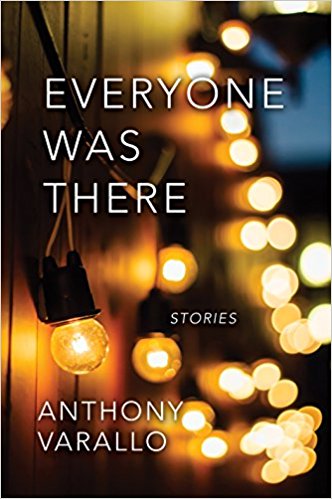 As far as I can remember, it started about ten years ago, right around the time we finally broke down and got Wi-Fi in the house, after years of saying we would never get Wi-Fi in the house—who needs Wi-Fi in their house?—this strange new phenomenon so subtle and so barely noticeable that, at first, it didn’t even feel like a change at all; it felt like what we had always known: the wish to be interrupted.
As far as I can remember, it started about ten years ago, right around the time we finally broke down and got Wi-Fi in the house, after years of saying we would never get Wi-Fi in the house—who needs Wi-Fi in their house?—this strange new phenomenon so subtle and so barely noticeable that, at first, it didn’t even feel like a change at all; it felt like what we had always known: the wish to be interrupted.
It occurred incrementally, the wish, starting out as little more than an occasional habit. My first recollection of it was sitting at home one night and trying to read a book without being able to follow what I was reading. I kept re-reading the same passage over and over again, or turning to the back cover to read the blurbs I’d already read a dozen times, or checking the author’s photo for no real reason. I got up and fetched a glass of water. I made myself a snack. I read the book’s jacket copy again, trying to remind myself what I was reading. I opened the book again and realized I had no idea what I’d been reading for several pages.
And then I did something I’d only just begun to do: I grabbed my laptop computer from my bag, placed it beside me, and started it up. Maybe, I thought, I should check my email. Yes, good idea. Maybe someone had emailed me while I was reading my book, and I hadn’t even known it, and that person was now sitting somewhere, eagerly awaiting my response. Think of how thoughtless I would be if I continued to read my book without even knowing that someone had emailed me. What if it was something urgent? Surely the person who had emailed me something urgent would appreciate how quickly I responded to their email. Impressed, even, by my availability and interest in their urgent problem, even—and this part they wouldn’t know; how could they?—as I sat in my home trying to read a book I was having a hard time following. Thanks, they would say, for responding so quickly.
So, I sat my computer beside me and checked my email, a position that allowed me to keep the book open across my lap, should I want to keep reading it. Three new emails arrived, all junk. I deleted them, and then returned to my book, with the sudden sense that someone was watching me, perhaps approving of what I had done. I had paid attention to the world around me all while secluding myself from the world, too. No more lazy, introverted, solo reading for me, like I had done for so many years; no, I would read my book and be attentive to my email at the same time, in case anyone emailed me something significant. That’s what a thoughtful, caring person would do. Who would try to read a book while neglecting the world around them? A wish to be interrupted crept into my consciousness, without me quite realizing it somehow. I’d acquired a new taste for something, even if I didn’t know what it was exactly. Someone, somewhere, interrupt me. Please.
Nowadays, I seek interruption whenever I can. I keep my laptop open to email, weather, news, and baseball scores. I open my web browser before I pour coffee into my coffeemaker, before I make myself a slice of toast with peanut butter, before I would even think of reading a book. When was the last time I read a book first thing in the morning? Did I used to do that? I can barely remember now. These days, so much of my reading is done online, that the line between “reading” and nearly all other activity has been thoroughly blurred. Eradicated, even. To the degree that I’m nostalgic now, writing this essay, for a time when I read without my laptop nearby, without Wi-Fi up and running, without a new email demanding my attention: a special, low rate on a hotel I stayed at once, years ago. A coupon for savings on pharmacy products I do not need. Another petition to sign.
I look back to that time when I could read innocently, without the need for interruption, and wonder if I’ll ever return to that kind of simplicity. And I would wonder about it even more, and question, perhaps, what it all means, but I’d rather not think about it now, with the day just starting up, my coffee still warm. Plus, I need to go check my email.








